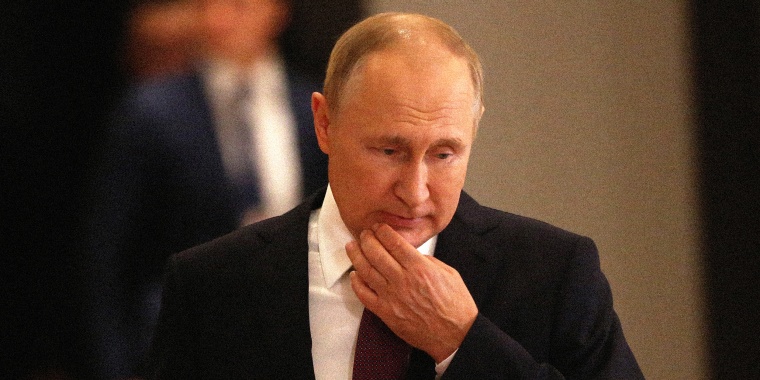Flights out of Russia are selling out, despite skyrocketing prices, after Russian President Vladimir Putin announced he'll be mobilizing hundreds of thousands of additional troops for his war on Ukraine. That rush to get out of Russia is likely a foreshadowing of the growing domestic discontent Putin will have to reckon with as his troubled war effort becomes more costly.
Wednesday marked a new phase of Putin's imperialistic project. Among other things, his new policies indefinitely extend the contracts of soldiers who signed up for only several months of service and call up around 300,000 military reservists for the war. The newly mobilized will be limited to people with experience as professional soldiers. But it immediately signaled a couple things about the changing nature of the war.
A significantly larger swath of society is going to be affected by the war.
First, it’s an admission that Russia's military has been failing to execute its objectives against a far smaller country. The limited resources allocated for Putin's “special operation” in Ukraine — during which Russian forces were kept at roughly “peacetime” levels — have proven insufficient. There's now no concealing Moscow's desperation for more manpower in the wake of poor military performance and huge casualty rates.
Second, it signals that a significantly larger swath of society is going to be affected by the war. Recruits who survived their initial contracts appear to be locked into a dangerous war indefinitely, and a new, sizable set of soldiers will be required to take up arms. The families and communities of these soldiers will be at risk of losing them. And surely many civilian Russian men are wondering whether they’re next — that is, whether the pool of men mobilized could grow larger or whether a nationwide draft could be instituted. Unconfirmed rumors are floating around Russian social media that men 18 to 65 aren’t being allowed to leave the country. Regardless of their veracity, that these ideas are swirling at all is a sign of how popular consciousness is shifting in relation to the war.
Putin must weigh a simple bit of math as he doubles down: The greater the number of soldiers who have to mobilize for the war, the less abstract the war becomes. "The period of passive, contemplative heroism, with which the Russian political regime satisfied the self-respect of citizens, is over,” Aleksandr Baunov, a senior fellow at the Carnegie Endowment for International Peace, wrote on Telegram, according to The New York Times. “Now they will be required to make sacrifices.”
One can’t know for certain what’s spurring the wave of departures that’s causing flights leaving Russia to sell out. It could be able-bodied men worried about being placed on the front lines of a failing war. It could be people who morally and ideologically oppose the war or anticipate heightened repression in response to antiwar dissent. (Opposition politicians are already calling for more protests; they will almost certainly face harsh crackdowns.) It could be people frightened by Putin’s stern proclamation that he wasn’t bluffing when he warned the West that he was willing to use his nuclear arsenal to protect what he calls his territory. It could be people concerned that the Russian economy or their business sectors could take even harder hits from international sanctions as Putin rattles sabers and doubles down on the war.
But whatever the reason or reasons, it’s reasonable to guess that many of the departures — which come after the hundreds of thousands of departures over the course of the war so far — involve wanting to avoid entanglement in the many kinds of suffering tied to war. Of course, not all those who fear or oppose the war will leave or can afford to leave. Many could stay and mobilize against Putin. And here we see Putin’s dilemma. He fears losing face internationally and domestically through a failed operation in Ukraine. But the more Russian blood he causes to be spilled in his attempt to extract some kind of victory over Ukraine, the more enemies he’s likely to generate within his own country.

